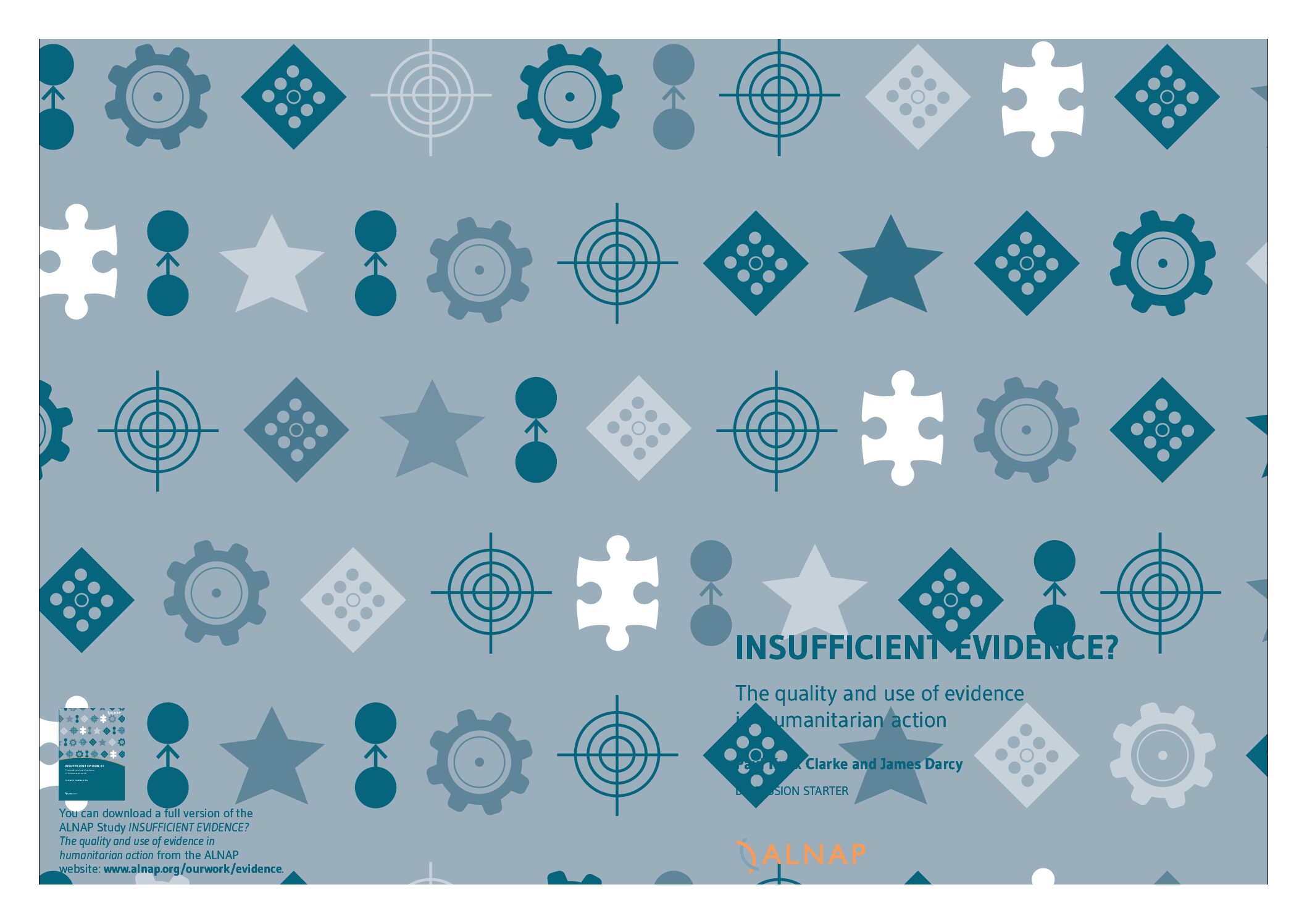Why does evidence matter for humanitarian action?
The failure to generate and use evidence in policy and response makes humanitarian action less effective, less ethical and less accountable.
Effective humanitarian responses depend as much on knowledge as they do on funding or logistics. Indeed, without knowledge, responses cannot hope to succeed: ‘The international humanitarian community’s ability to collect, analyse, disseminate and act on key information is fundamental to effective response’ (Mahmood et al., 2010).
Equally importantly, in a sector rooted so firmly in values, evidence matters if we are to uphold humanitarian principles: ‘If you believe in impartiality, you have to be evidence based. You can’t be impartial if you don’t know what the range of choices are’ (Peter Walker, personal communication, March 2013). A recent DFID study on the challenges of collecting evidence in emergencies highlights the need to follow ethical frameworks when doing so and also states that it is ‘unethical to deliver interventions that are at best not proven, are ineffective or, worse still, do actual harm’ (DFID, 2012: 11).
Finally, evidence matters for accountability. Donor organisations, affected states and civil society have a legitimate expectation to know how – and how well – money is spent on behalf of people caught up in crises. To meet these expectations, humanitarian organisations must be able to prove that needs exist and demonstrate that they have made informed and deliberate choices about the most effective and efficient way to respond. They must also be able to provide evidence on the impact of the choices they make.
This paper (and the ALNAP meeting on which it is based) is underpinned by the sense that ‘at present, humanitarian decisions are often based on poor information’ (DFID, 2012: 5) and are ‘anecdote, rather than evidence, driven’ (Mazurana et al.,2011: 1). Even when evidence is available, decisions can still appear to be driven by personal conviction, or by political or fundraising considerations. So it is important that the evidence available be of the highest quality, but it is equally important that this evidence should be used by decision-makers.
THIS PAPER FINDS THAT:
- Despite progress over the past 20 years, there appears to be room
for improvement in the quality and use of evidence in international
humanitarian action;
- Despite progress over the past 20 years, there appears to be room
Evidence matters: the use of good quality evidence improves the effectiveness and accountability of humanitarian action, and is in accordance with humanitarian ethics and principles;
Discussions on evidence in humanitarian action can be seen in the context of
broader discussions around the generation and use of evidence in public policy.
